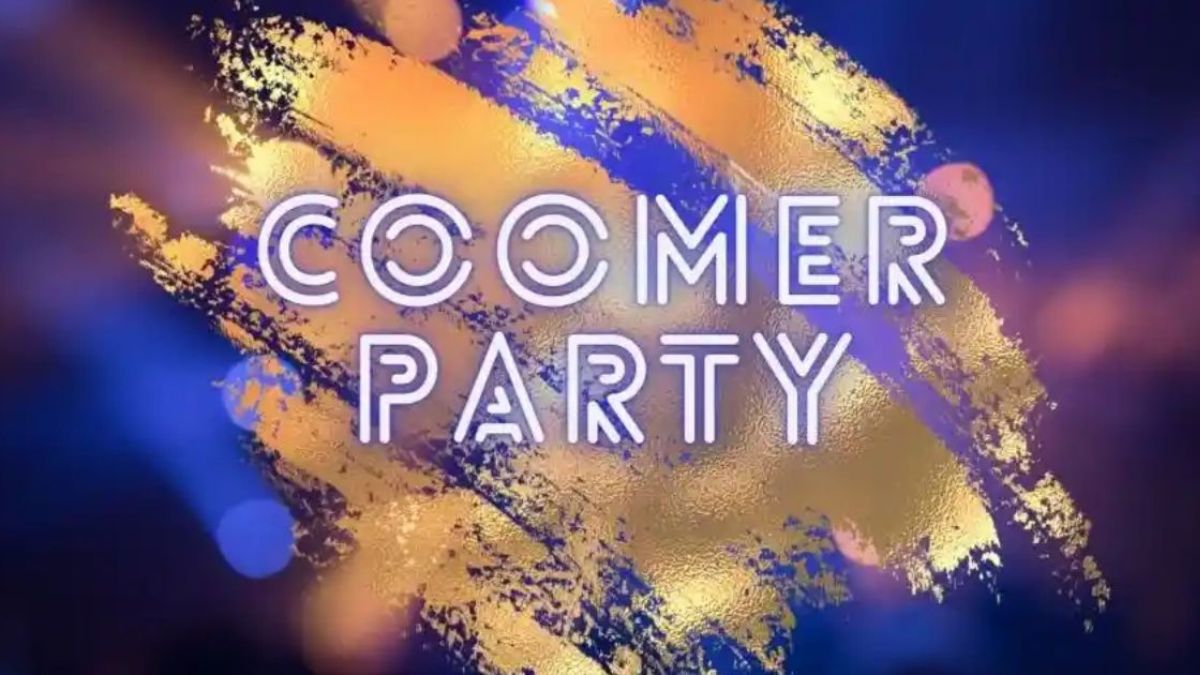Behind the Meme: The Curious Rise of the Coomer Party Phenomenon

What is a Coomer? Breaking Down the Meme Before the Party
Before we dive into what a Coomer Party even is, let’s rewind a bit and look at where the term “Coomer” comes from. In meme culture, “Coomer” refers to a caricature of someone who is hopelessly addicted to internet content—typically of the NSFW variety—and lacks self-control when it comes to indulgence. It’s often used satirically, highlighting the excessive, obsessive tendencies in online behavior, especially among young males.
The original “Coomer” image is a bald, unshaven cartoon figure with a blank stare and a strong sense of “terminally online” energy. It was born on imageboards and meme forums, eventually exploding across platforms like Reddit and Twitter. While it started as a tongue-in-cheek jab, it quickly became symbolic of a broader conversation: how the digital age feeds into unhealthy habits—whether that’s excessive screen time, escapism, or the lack of real-life engagement.
But the meme didn’t stop there. Like all good internet inside jokes, it evolved. Soon, people started referencing the concept of a “Coomer Party.” At first, it was just a sarcastic phrase tossed around in comment threads. But it quickly became a metaphor for certain behaviors—parties or online spaces where self-indulgence, mindless entertainment, and zero discipline reign supreme. Whether it’s literal or ironic, the term packs a surprising amount of cultural commentary.
So, What Exactly is a Coomer Party?

A “Coomer Party” isn’t necessarily a real-life event with streamers, DJs, and balloons (though someone on TikTok has probably tried it). Instead, it’s more of a cultural scenario—a label for gatherings or online experiences centered around dopamine-chasing activities. Think binge-watching, compulsive gaming, doom-scrolling, or mindless meme sharing late into the night. It’s where productivity goes to die and short-term pleasure takes the wheel.
Ironically, some people have embraced the concept. There are Discord servers jokingly labeled “Coomer Party HQ” where people gather to share memes, unfiltered opinions, and sometimes—not surprisingly—explicit content. It’s a space that resists norms, mocks political correctness, and thrives on chaotic, often controversial humor. For better or worse, these digital communities offer a sense of identity to those who feel alienated from mainstream culture.
But there’s also a darker undercurrent. The “Coomer Party” has become a cautionary symbol for what happens when escapism replaces engagement. Instead of confronting the tough stuff—mental health issues, addiction, loneliness—some dive into the endless scroll of short-term gratification. While the memes and parties might seem funny on the surface, they often reflect real issues underneath.
The Psychology Behind the Party: Why It Resonates With So Many
Why does this concept catch on so easily? Simple: it reflects something real. In today’s hyper-digital world, we’re all a little Coomer-ish. The internet offers constant stimulation—Reels, TikToks, OnlyFans, Reddit threads—it’s a buffet of instant dopamine. And let’s face it, resisting that temptation? Not easy. So, the “Coomer Party” becomes a meme we laugh at, but also secretly relate to.
Psychologists have long studied the addictive nature of digital content. Our brains are hardwired to seek pleasure, and online platforms are designed to exploit that. The Coomer meme, and by extension the Coomer Party, becomes a shorthand for this cycle of consumption. It’s the internet reflecting our own behavior back at us—but through a meme filter.
For many, participating in the joke is also a coping mechanism. Sharing Coomer memes or joking about being at a “Coomer Party” provides a sense of belonging. It’s a digital wink to say, “Yeah, I stayed up until 3 AM watching nonsense too. We’re in this together.” And while the humor is often self-deprecating, it helps people process feelings of guilt, burnout, and detachment.
From Meme to Movement: How the Coomer Party Became a Commentary on Culture
What started as a meme has evolved into something much deeper. The Coomer Party isn’t just about laughs—it’s about critique. It holds a mirror up to the overstimulated, overstressed, and often over-isolated lifestyle that modern internet users face. It challenges us to think about how much of our lives are driven by impulse, and how rarely we pause to consider the why behind our behaviors.
Social commentators and digital anthropologists have pointed out that the Coomer Party is symbolic of a generation struggling with purpose. In a time where gig work is the norm, relationships are increasingly virtual, and traditional milestones (like owning a home or starting a family) seem out of reach, the desire to “numb out” becomes more understandable. The Coomer Party becomes a rebellion—not against society, but against expectation.
In some fringe corners of the internet, it’s even taken on a satirical political edge. People jokingly refer to themselves as part of the “Coomer Party” as if it’s a political faction. It’s not uncommon to see fake manifestos or memes with slogans like “No Work, Only Coom” or “Vote Coomer 2024.” Underneath the absurdity is a biting critique of modern life—consumerism, digital addiction, and the erosion of meaning in everyday experience.
Coomer Party IRL: Are Real-Life Events a Thing?
While most references to the Coomer Party are digital, there have been a few attempts to bring it to life—usually in a very tongue-in-cheek way. Some pop-up events and meme-themed parties have used the name as a kind of internet irony badge. You’ll see people show up in pajamas, sipping energy drinks, surrounded by meme posters and glow-in-the-dark lights. It’s basically an anti-party for the hyper-online generation.
These events often blend meme culture with performance art. Think people live-streaming themselves watching memes for hours, panels on digital identity, or even stand-up comedy poking fun at incel culture and internet obsession. It’s a weird mix of social commentary and chaotic entertainment. It doesn’t always make sense, but it feels right for the internet era.
That said, some caution is advised. Not everyone gets the joke, and the term “Coomer” can easily veer into problematic territory—especially when it intersects with NSFW content or stereotypes. If you’re planning to attend or host a Coomer-themed event, understanding the layers of irony (and keeping it respectful) is key to not crossing a line.
Final Thoughts: Laughing With or Laughing At?
At the end of the day, the Coomer Party is a fascinating reflection of where we are as a culture. It’s part meme, part warning, part coping mechanism. It pokes fun at our worst digital habits but also speaks to something more profound—the way we use humor to navigate a world that’s increasingly overwhelming and disconnected.
Is it self-aware? Absolutely. Is it problematic at times? Also yes. But like many internet phenomena, its value lies in how we engage with it. If it sparks introspection or gives you a moment of connection with others who feel the same digital fatigue, then maybe it’s not just a joke after all.
So, next time you see someone post “Coomer Party starts at 8,” remember—it might just be a meme. But it might also be a mirror. And in that reflection, you’ll probably find yourself smiling, cringing, and maybe even learning something about how we all navigate the absurdity of modern life.


